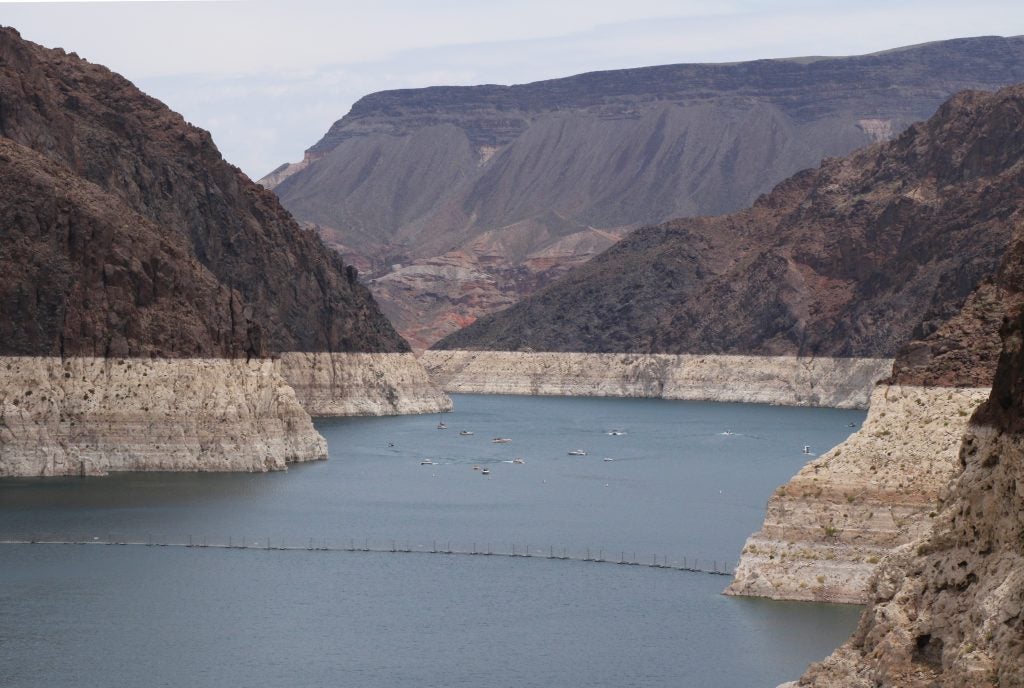Climate leadership is water leadership. This Arizona bill is neither.
Climate change is already having sweeping impacts across Arizona — from devastating wildfires to increases in heat-related illnesses and deaths to declines in safe and reliable water supplies. Unless global carbon emissions are reduced to net zero in the coming decades, these impacts will only multiply and increase in severity across the Southwest.
We must embrace all available tools to reduce carbon emissions to help stave off worsening climate change, which is why we oppose HB 2248, a bill that would undermine progress on Arizona’s proposed clean energy rules.
HB 2248 would strip authority from the Arizona Corporation Commission and vest that power in the state Legislature. This would effectively block the commission from adopting nearly finalized rules that will require 50% of the state’s power to be carbon-free by 2035 and 100% carbon-free by 2050.
A broad group of stakeholders has been developing these rules over the last five years, including utilities, solar providers, energy efficiency activists, and big and small businesses. Now is not the time to undermine this hard work and slow progress. In Arizona and much of the West, climate leadership is water leadership, and we need to see more of it, fast. Share on X
Clean energy is a triple win for Arizona
Renewable energy development is a triple win for the state. First, it can create thousands of good-paying jobs, which support Arizona’s economy, workers and entrepreneurs. Second, it could save Arizonans $2 billon by transitioning to renewable energy, according to a recent study. Finally, renewable energy can help Arizona can be part of the solution to limit worsening climate change impacts, supporting its reputation as an attractive place to live and drawing new residents and businesses.
HB 2248, which will be heard in the Arizona House Committee on Natural Resources, Energy & Water today, could force us to leave such economic benefits on the table and would jeopardize progress that Arizona has made on renewable energy standards that help to attract talent and innovation to the state.
Progress on net-zero carbon emissions supports water security
We must acknowledge the direct relationship between water security and carbon emissions. Warming caused by carbon emissions has already reduced our limited and precious water supplies in the Southwest.
In many ways, the Colorado River Basin is ground zero for climate change impacts on water supplies in the U.S. The river is a critical source of water for Arizona communities, accounting for about 40% of the state’s water supply.

A U.S. Geological Survey study found that with each additional 1 degree Celsius (1.8 degrees Fahrenheit) of warming, the Colorado River’s average flow is likely to drop by about 9%. Under status quo carbon emissions, we are likely to exceed on average globally 1.5 degrees Celsius of warming by 2040 at the latest, and 2 degrees Celsius of warming by 2050.
Records suggest the southwestern U.S. will likely face greater temperature increases than the global average. Without meaningful reductions in carbon emissions, this temperature increase is projected to result in 20% to 30% lower flows in the Colorado River by 2050 compared with the current long-term average by 2050.
The plain truth is that a “business as usual” carbon emissions scenario will devastate Arizona’s water supplies within a generation. Changing course requires action now. Taking a different, more livable and secure path will require carbon emission reductions by 50% on average within the next decade, according to the Intergovernmental Panel on Climate Change.
Climate change is already threatening water supplies
Climate change impacts are not a distant threat; they are happening now.
Just this month the U.S. Bureau of Reclamation released a sobering forecast that shows Lake Mead and Lake Powell — the nation’s two largest reservoirs and critical storage for the Colorado River — dipping to near-record-low levels. A continuation of that trend would trigger water cuts under a drought contingency plan approved in 2019.
The nation — indeed the world — is moving away from fossil fuels toward renewable energy to curb more global warming and mitigate impacts. The question is not what direction we need to go, but how fast we can get there.
Arizona’s renewable energy regulations would be an important first step in the right direction, but even more ambition is both possible and necessary. For example, President Joe Biden is calling for the power sector be 100% clean by 2035.
Arizona must embrace every tool at its disposal to address climate change, our water future and our economic future — the three are inextricably connected. In Arizona and much of the West, climate leadership is water leadership, and we need to see more of it, fast.










